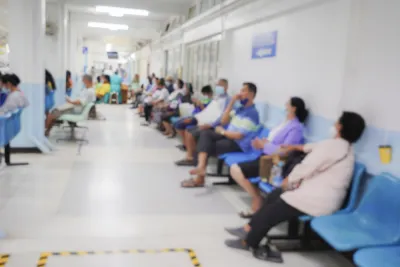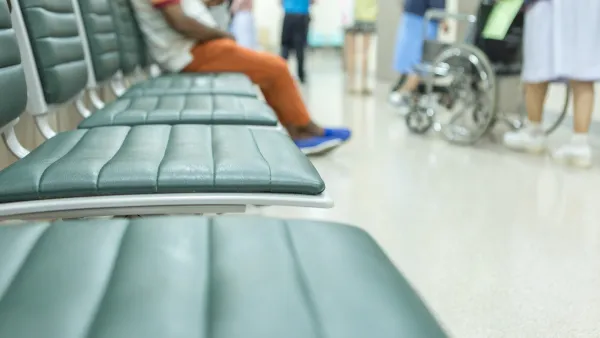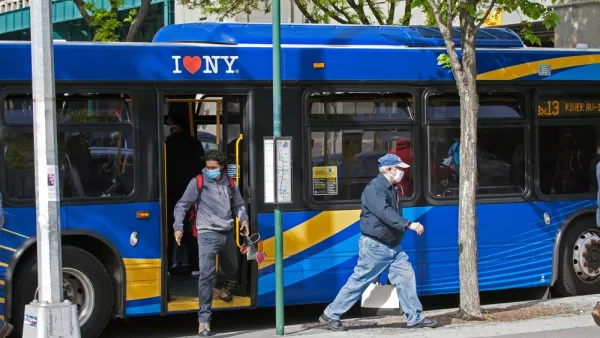One in five Americans with limited access to transit and no vehicle have to forego medical appointments.

A new report from the Urban Institute highlights the link between access to transportation and public health, noting that “More than 20% of people without a personal vehicle and with only poor or fair access to public transportation said they had foregone healthcare needs because of difficulty finding transportation.” Missed appointments can prevent people from getting the care they need and cost the healthcare industry up to $150 billion each year.
Shannon Muchmore summarizes the study in Smart Cities Dive, outlining how the findings can help policymakers and medical providers understand gaps in transit and health systems. “Insurers, particularly in the Medicare Advantage program, have expanded benefit offerings to include a ride to a doctor’s appointment in some cases. Providers have partnered with companies such as Uber and Lyft to provide transportation.”
Muchmore adds that telehealth services are helping to fill the gap, but relaxed Covid-era regulations that permitted more virtual health services are still considered temporary.
FULL STORY: Without vehicle or viable public transit, 1 in 5 miss needed healthcare: report

National Parks Layoffs Will Cause Communities to Lose Billions
Thousands of essential park workers were laid off this week, just before the busy spring break season.

Retro-silient?: America’s First “Eco-burb,” The Woodlands Turns 50
A master-planned community north of Houston offers lessons on green infrastructure and resilient design, but falls short of its founder’s lofty affordability and walkability goals.

Delivering for America Plan Will Downgrade Mail Service in at Least 49.5 Percent of Zip Codes
Republican and Democrat lawmakers criticize the plan for its disproportionate negative impact on rural communities.

Test News Post 1
This is a summary

Test News Headline 46
Test for the image on the front page.

Balancing Bombs and Butterflies: How the National Guard Protects a Rare Species
The National Guard at Fort Indiantown Gap uses GIS technology and land management strategies to balance military training with conservation efforts, ensuring the survival of the rare eastern regal fritillary butterfly.
Urban Design for Planners 1: Software Tools
This six-course series explores essential urban design concepts using open source software and equips planners with the tools they need to participate fully in the urban design process.
Planning for Universal Design
Learn the tools for implementing Universal Design in planning regulations.
EMC Planning Group, Inc.
Planetizen
Planetizen
Mpact (formerly Rail~Volution)
Great Falls Development Authority, Inc.
HUDs Office of Policy Development and Research
NYU Wagner Graduate School of Public Service





























